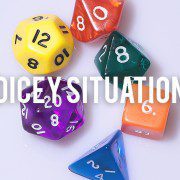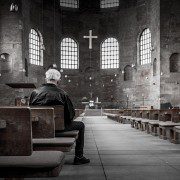ODB: The Seventh Stanza
December 19, 2015
READ: Luke 2:8-14
Today in the town of David a Savior has been born to you; he is the Messiah, the Lord. Luke 2:11
In the summer of 1861, Henry Wadsworth Longfellow’s wife, Frances, died tragically in a fire. That first Christmas without her, he wrote in his diary, “How inexpressibly sad are the holidays.” The next year was no better, as he recorded, “ ‘A merry Christmas,’ say the children, but that is no more for me.”
In 1863, as the American Civil War was dragging on, Longfellow’s son joined the army against his father’s wishes and was critically injured. On Christmas Day that year, as church bells announced the arrival of another painful Christmas, Longfellow picked up his pen and began to write, “I Heard the Bells on Christmas Day.”
The poem begins pleasantly, lyrically, but then takes a dark turn. The violent imagery of the pivotal fourth verse ill suits a Christmas carol. “Accursed” cannons “thundered,” mocking the message of peace. By the fifth and sixth verses, Longfellow’s desolation is nearly complete. “It was as if an earthquake rent the hearth-stones of a continent,” he wrote. The poet nearly gave up: “And in despair I bowed my head; ‘There is no peace on earth,’ I said.”
But then, from the depths of that bleak Christmas day, Longfellow heard the irrepressible sound of hope. And he wrote this seventh stanza.
Then pealed the bells more loud and deep: “God is not dead, nor doth He sleep! The wrong shall fail, the right prevail, with peace on earth, good-will to men!”
The war raged on and so did memories of his personal tragedies, but it could not stop Christmas. The Messiah is born! He promises, “I am making everything new!” (Rev. 21:5).
— Tim Gustafson
Immanuel—God with us!
Source: Our Daily Bread







